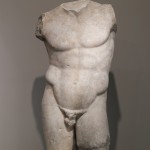Here’s my nightly practice with my kids:
Now I lay me down to sleep,
And float into God’s/Goddess’ dreamy deep.
For my life my thanks I give.
To love this world, for this I live.
When I wake in the morning light,
May Goddess be with me and guide my sight.
This is my variation on the classic 18th century children’s prayer. I use “God” with my son, because that is what he prefers, and Goddess with my daughter, because that is what she prefers.
After the prayer, we each say three things that we are thankful for. Then we recite the blessing below:
Deep peace of the rolling wave to you
Deep peace of the blowing breeze
Deep peace of the quiet earth to you
Depp peace of the shining stars
Deep peace of the white moon to you
Deep peace of the gentle night
Deep peace, deep peace, deep peace to you.
This is my variation on a prayer by Fiona Macleod, “The Dominion of Dreams Under a Dark Star” (1895). (I actually got this idea from a podcaster, “Darklyfey” of the (now defunct) podcast, The Dark Side of Fey, who says the blessing over her children at night.)
I also wrote this prayer for the morning, but we’ve never practiced it because we rarely wake up at the same time:
Now I wake to the morning light,
As the sun returns from the womb of night.
May my heart be filled with joy this day,
May my mind be filled with wonder this I pray,
May the beauty of the earth fill my sight,
And my soul’s path before me always be bright.
Oh, and while I’m at it, here’s the grace we sometimes say over meals:
We thank the earth in which the seed does grow;
We thank the hands that the seed did sow.
We thank the sky which gave the seed its rain;
We thank the sun whose rays yield us gain.
We thank those hands that this meal did prepare;
To live in honor of these gifts is our prayer.
My daughter especially seems to love these recited prayers and our nightly ritual.
I grew up in a religion which eschewed recited prayers as not genuine. Prayer, as I was taught it, was a conversation with deity. It usually followed a certain formula:
1. “Dear Heavenly Father …”
2. Say what you are grateful for: “Thank you for …”
3. State what blessings you wish for: “Please bless …”
4. “In the name of Jesus Christ, Amen.”
I taught this formula to many people while I was a Mormon missionary. Since I served in Brazil, most of the people I taught were Catholic and were completely unfamiliar with this conversational style of prayer. While there is a certain amount of formality to public prayers, Mormons are encouraged to be even more informal and conversational in their private prayers.
There was always a part of me that had difficulty with the informality. I think in my own mind, my conception of God emphasized the “Heavenly” over the “Father”, the transcendence over the relational, and this was probably reflected in my ambivalence about conversational prayers. Now my conception of divinity is both more and less intimate than the God of my childhood. The gods are both closer to me than my own eyes (Eckhart), but also much larger and much stranger than I can imagine (Sagan). And my devotional practice reflects that now, I think.
For a long time after leaving the Mormon church, I could not pray at all. I did not (and still do not) believe in a deity that intervenes in nature or that grants wishes or withholds blessings. As I have slowly developed a new spiritual practice, however, I have found a place for a form of prayer. And recited prayers have opened the door again to a practice that was lost to me.
My nightly ritual begins and ends with recited prayers, but I do leave a space in the middle for spontaneous prayer, for conversation, if I so desire. “This is my sacred fire. This is my holy place. These are the words of my prayer …” Most often, I do not take advantage of it, or I fill it with another recitation. But sometimes I do express heartfelt wishes pertaining to my own spiritual development. I pray that I may learn to love the world or that I may come to understand the mysteries of life and death. (Not the kind of thing I expect to descend from heaven like manna.) I have found that the recited prayers are brackets that help me create the sacred time and sacred space in which I feel comfortable to pray. In this way, I feel like I cam honoring the mystery that is divinity, in a way that the more conversational prayers of my Mormon years never did.















